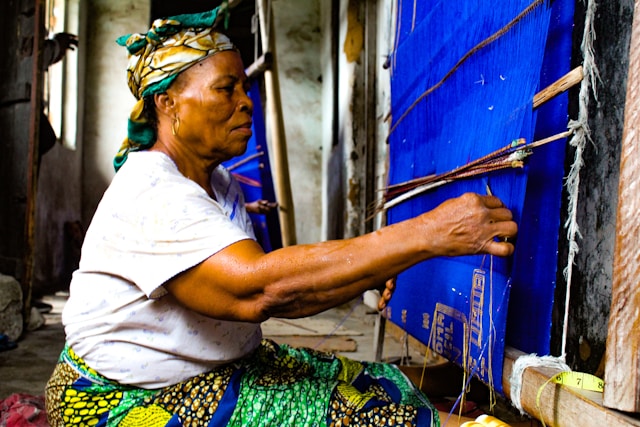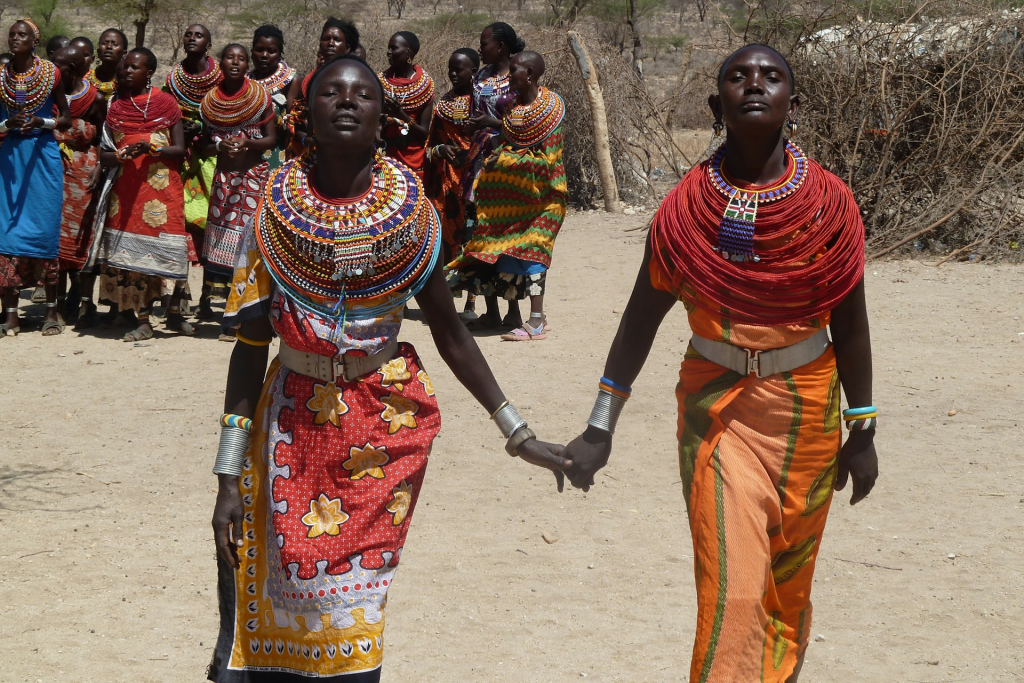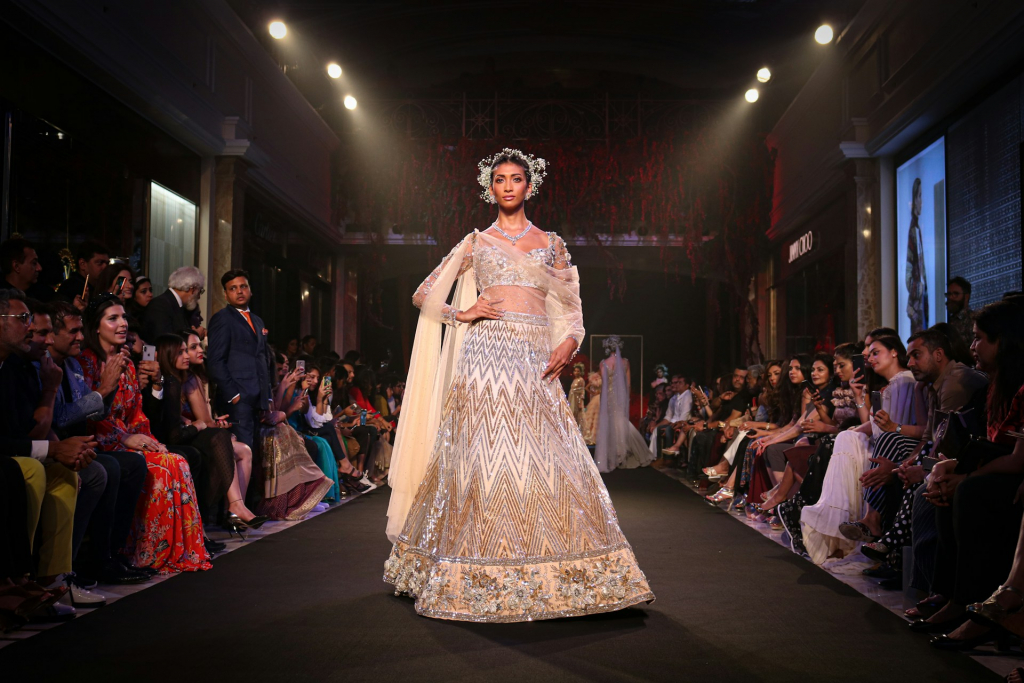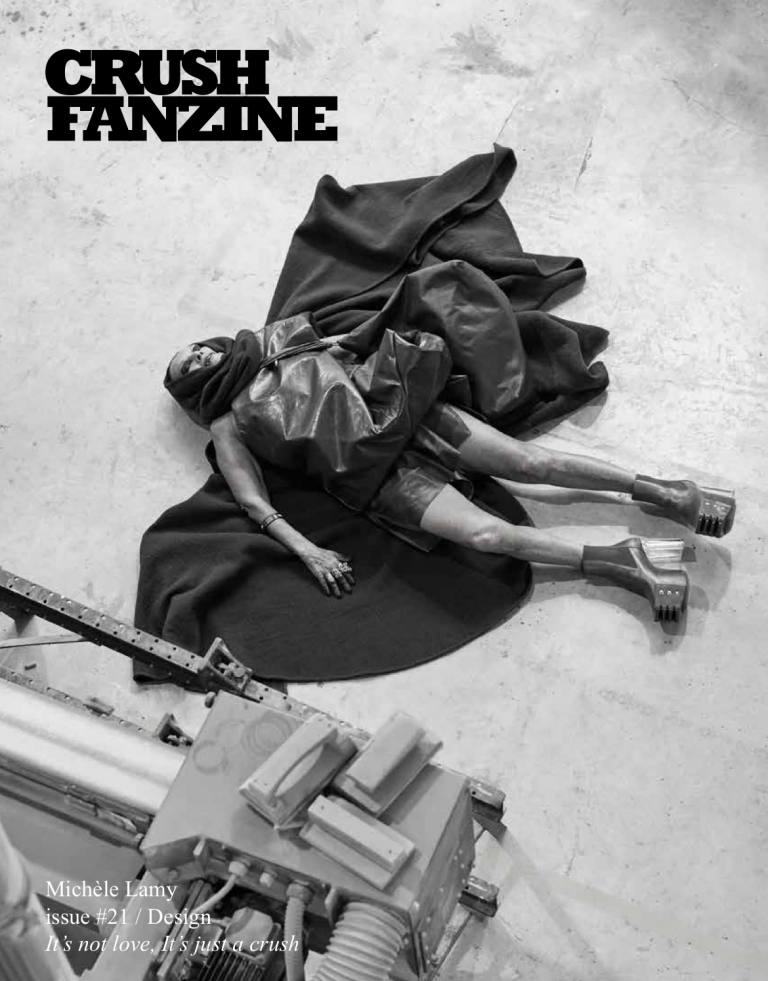In the dynamic world of fashion, cultural fashion shows are emerging as vibrant stages for a profound expression of tradition and innovation. They transcend mere clothing displays, becoming spectacles where each piece tells a story, and each show is a dialogue between past and present.
This fusion of ancestral cultures with contemporary trends not only enriches the fashion industry but also strengthens the understanding and appreciation of global diversity.
In this article, we will explore the marvelous journey of cultural fashion shows. And discover how designers from around the world incorporate cultural elements into their creations while maintaining a modern and innovative outlook.
From inherited artisanal techniques to modern interpretations of traditional attire, cultural fashion is a fertile ground for creativity and expression.

As globalization shortens the distances between cultures, cultural fashion shows become even more significant. They are not just showcases for fashion; they are platforms for education, intercultural dialogue, and the celebration of human heritage.
Join us in this exploration of cultural fashion shows, where each stitch, color, and cut reveals more than just style – it unveils stories, celebrates identity, and builds bridges between generations. Uncover the hidden richness of traditions, the beauty in diversity, and the art in the fusion of worlds. Let’s dive into the fascinating world of cultural fashion shows, where each runway is a journey through time and culture.
But first, let’s understand what culture is.
CULTURE: WEAVING TOGETHER IDENTITIES AND TRADITIONS
Culture is an expansive and intricate concept essential for understanding cultural fashion shows. It encompasses a broad array of practices, beliefs, norms, arts, laws, and customs acquired by humans both individually and as members of society.
Culture incorporates elements such as language, religion, cuisine, music, and clothing and is shaped by factors like history, geography, and social interactions. While each culture possesses its unique characteristics and values, they often share common elements, highlighting the interconnectedness of the human world and its dynamic, evolving nature.
WHAT IS A CULTURAL FASHION SHOW: THE FUSION OF TRADITION AND MODERNITY
Cultural fashion shows represent far more than just clothing exhibitions; they are a unique phenomenon reflecting the interplay between culture, society, and fashion. Skillfully integrating traditional elements with contemporary innovations, these events establish themselves as powerful vehicles for cultural storytelling. In each cultural fashion show, every showcased piece carries its own story, meaning, and a special place in the vast cultural context.
The rich cultural tapestry of these events is exemplified in vibrant African fashion, where colors, fabrics, and patterns do more than clothing – they narrate the stories of an entire continent. Lagos Fashion Week in Nigeria is a distinct example, showcasing timeless contemporary designs that are deeply rooted in ancient craftsmanship. Brands like Kílèntár, Lilabare, and Pepper Row exemplify the blend of tradition and modernity in African fashion with handmade pieces that preserve artisanal methods in their contemporary designs and celebrate both tradition and innovation.

Similarly, Tokyo Fashion Week stands out for its unique ability to blend millennia-old traditions with modern touches, creating a visual dialogue that traverses the past and present. Brands like Issey Miyake and Yohji Yamamoto exemplify this fusion, integrating traditional cultural elements such as kimonos with the simplicity and asymmetry characteristic of Japanese aesthetics into modern and innovative designs.
Additionally, traditional Indian fashion shows are a testament to India’s rich heritage. They showcase a mesmerizing array of saris, lehengas, and other ornate garments, each telling a story of historical craftsmanship and cultural significance. For example, designers like Anita Dongre and Manish Malhotra are known for their collections that utilize Indian artisanal techniques such as “zardozi” (metal thread embroidery) and “bandhani” (a tie-dyeing technique), applied in contemporary cuts and styles. These shows not only celebrate the beauty of Indian textiles but also illustrate how traditional methods can be innovatively integrated into modern fashion.
Indigenous fashion shows, on the other hand, offer a platform for indigenous designers and communities to present their cultural narratives, traditional patterns, and contemporary interpretations of ancestral attire, promoting awareness and respect for these rich cultural identities. For example, designers like Lesley Hampton and Dorothy Grant have been highlighted for their innovative contributions in blending indigenous cultural elements with modern fashion. This combination not only preserves traditional arts but also reinterprets them in a way that resonates with contemporary audiences, enhancing the visibility and appreciation of indigenous cultures.
These examples highlight a fascinating aspect of these shows – the fusion of traditional elements with modern design. This blend creates a unique style that respects heritage while embracing innovation. Cultural fashion shows are much more than fashion events; they are visual and sensory celebrations of cultural diversity, highlighting the artistry and richness of different cultures in a dynamic fashion panorama.
Want to learn more about cultural fashion shows and their cultural heritage? Check out this video FASHION IS CULTURAL HERITAGE.
THE TRANSFORMATIVE LEGACY: SOCIAL AND CULTURAL IMPACTS OF CULTURAL FASHION SHOWS
When we talk about the social impacts of cultural fashion shows, we refer to far more than just trends and styles. These events, essential showcases in the world of fashion, play a crucial role in shaping perceptions and driving significant social change.
Firstly, cultural fashion shows serve as powerful platforms for education and cultural awareness. By presenting attire and styles from various cultures, they open doors to understanding and appreciating the traditions and stories that shape societies around the world. This aspect is particularly relevant in the current era, where globalization and interconnectedness make respect and knowledge about diverse cultures even more essential.
Moreover, these shows have another significant social impact by promoting diversity and inclusion. They challenge established norms in the fashion industry by presenting and celebrating fashion from cultures often marginalized or underrepresented.
This movement not only enriches the fashion landscape with new inspirations and perspectives but also fosters greater acceptance and appreciation for cultural diversity.
Cultural fashion shows reflect and simultaneously influence social and cultural changes. They mirror society’s attitudes toward diversity and inclusion and are often forerunners in setting new standards for cultural acceptance and understanding.
These impacts are concisely summarized by Kenneth Cole, from New York, NY. He states, “I do believe that not only is community and business not unrelated, I think they’re interrelated and I think they’re interconnected.” During his panel “Fashion Is Always on Purpose” at the 9th Worldwide Talks, Cole discussed the interconnection between community, business, and fashion.
Kenneth Cole’s view captures the essence of cultural fashion shows: they are not just fashion events but powerful platforms that unite community, business, and society in deeply interconnected ways.
THE EDUCATIONAL IMPACT AND AWARENESS RAISED BY CULTURAL FASHION SHOWS
Education and awareness are undoubtedly two of the most significant impacts of cultural fashion shows. By unveiling the beauty and complexity of different cultures through fashion, these events provide audiences with more than just a visual spectacle; they offer an educational experience that opens doors to a world of rich and diverse traditions.
Cultural fashion shows act as a window to the unknown by presenting attire and styles that reflect the history and values of various societies.
For many viewers, it may be their first opportunity to encounter certain traditions and cultural practices. This exposure has the power to break down prejudices, expand horizons, and foster a deeper respect for differences. It’s a form of education that goes beyond books or classrooms, engaging viewers in an emotional and sensory way.
For instance, when watching an African fashion show, where vibrant fabrics and patterns narrate stories of an entire continent, the audience appreciates not just the fashion but also gains a richer understanding of the history, symbolism, and artisanal practices shaping these cultures. This awareness is invaluable, creating bridges of empathy and understanding between distinct cultures.
Furthermore, these shows encourage ongoing dialogue about the importance of preserving and respecting cultural heritage. In an increasingly globalized world, where cultures are constantly interacting (and sometimes clashing), understanding and valuing cultural traditions become essential for harmonious coexistence.
Cultural fashion shows also play a vital role in educating younger generations. They introduce concepts of diversity and inclusion in a way that is both engaging and inspiring. Seeing fashion as a celebration of cultural identities, young viewers learn to value and respect diversity from an early age.
MIRROR OF AUTHENTICITY: THE ART OF CULTURAL REPRESENTATION IN FASHION SHOWS
At the heart of cultural fashion shows lies the true essence of cultural representation: unwavering authenticity and a genuine celebration of cultural origins. It is crucial that fashion designs do more than just respect their roots—they must resonate with the depth and splendor of each tradition, evoking the authentic cultural richness in each piece.
In the intertwining of fashion and culture, TAARACH® emerges as a symbol of innovation. Fueled by folklore, passion, and the rich tapestry of Latin American indigenous peoples, the brand goes beyond traditional fashion creation, dedicating itself to the preservation and glorification of age-old textile traditions and artisanal techniques.
The belts from TAARACH®, inspired by the traditional Andean “faja,” transcend the notion of simple accessories to become tangible expressions of heritage and cultural identity. In each presentation, TAARACH® offers a unique vision, celebrating historical roots while innovating for the future, constantly reshaping the role of fashion as a celebration of cultural heritages.
Similarly distinguished in the fashion scene, which combines tradition and modernity, is Istani. As an independent and woman-led brand based in New York and inspired by Pakistan since 2019, Istani values local craftsmanship, choosing handcrafted fabrics by Pakistani artisans to create timeless pieces. Their creations are aimed at the modern and conscious woman, characterized by a bold and adventurous style. They find inspiration in cultural diversity, the richness of nature, and the enchantment of exploring human complexity. Learn more about the brand at MEET ISTANI: A BRAND THAT ENRICHES CULTURAL HERITAGE.

In a discussion about representation and honoring fashion heritage, particularly in the Latin American context, Karla Martínez de Salas, from El Paso, TX, and Franchesca Guim, from Santo Domingo, Dominican Republic, emphasized the importance of showcasing cultural diversity and heritage in the fashion industry during the “Fashion is Content Creation & Cultural Heritage” panel at the 1st Miami Talks.
They discussed the challenges of this representation, such as overcoming barriers in the fashion industry for Latin American creators and transitioning to more inclusive and authentic representations of different cultures and ethnicities.
These discussions are vital to understanding the importance and impact of cultural fashion shows in celebrating and elevating diverse cultural identities through fashion.
OVERCOMING CHALLENGES: ADDRESSING THE TRIALS AND CRITICISMS WITHIN CULTURAL FASHION SHOWS
The challenges and criticisms faced within cultural fashion shows are pivotal elements that require careful attention, particularly in a world where globalization and cultural exchange are rampant. Central to these challenges are issues of cultural appropriation and authenticity.
These problems arise when elements of a culture are used outside of their original context, often by designers not belonging to that culture, without due respect or understanding of their deeper significance.
In the context of cultural fashion shows, the line between inspiration and appropriation can be thin. Cultural appropriation often occurs when fashion appropriates symbols, traditions, or styles of marginalized or minority cultures without acknowledging their origin or meaning.
This can lead to a superficial or erroneous representation of a culture, perpetuating stereotypes or reducing rich and complex cultural practices to mere fashion trends.
Moreover, the challenge of authenticity is paramount. For a cultural fashion show to be genuine, there must be a deep and respectful understanding of the culture being represented. This involves research, dialogue with members of the cultural community, and an approach that respects the heritage and values of that culture. It’s not just about replicating traditional attire but capturing its essence respecting its roots and meanings.
Responding to these concerns, the fashion industry has demonstrated growing awareness. This is evidenced by initiatives to ensure that cultural fashion shows are conducted in a respectful and representative manner.
Designers and brands are increasingly seeking collaborations with artists and artisans from the cultures that inspire their collections, ensuring that representation is authentic and benefits the communities of origin. Furthermore, there is an ongoing effort to educate designers, industry professionals, and the public about the importance of responsible cultural representation.
THE PROMISING FUTURE OF CULTURAL FASHION SHOWS AND THEIR ROLE IN CELEBRATING GLOBAL DIVERSITY
As we look toward the future of cultural fashion shows, we envision a landscape of endless possibilities and growing significance. These events are not just celebrations of fashion but are crucial platforms for education, intercultural understanding, and the preservation of global diversity.
As we progress in an increasingly connected world, cultural fashion shows become essential in highlighting and valuing unique cultural heritages while promoting dialogue and understanding among different peoples.
The future of these shows is intrinsically linked to the ongoing development of authentic and respectful representations of diverse cultures, maintaining a balance between preserving traditions and embracing innovation.
With technological advancements and shifts in social dynamics, we anticipate an evolution in how cultural fashion is presented and experienced, paving the way for even more creative and inclusive expressions.
Cultural fashion shows have the power to unite communities, celebrate diversity, and inspire future generations to value and respect the various cultures that make up our world.
Cultural fashion shows are not merely a reflection of our present; they are an invitation to shape together a more diverse, inclusive, and culturally rich future. As we move forward, cultural fashion shows will remain powerful symbols of the beauty and strength of human diversity, standing as vibrant testimonies of the colorful tapestry that is our global cultural heritage.
READ NEXT
Want to learn more about cultural fashion shows? Read these articles:
EMBRACING CULTURAL FASHION AS A SOURCE OF PRIDE
BLACK FASHION CULTURE: HOW MAINSTREAM FASHION FEEDS ON
ANITA DONGRE: FASHION AS A TOOL FOR EMPOWERING THE ROOTS OF A PEOPLE






